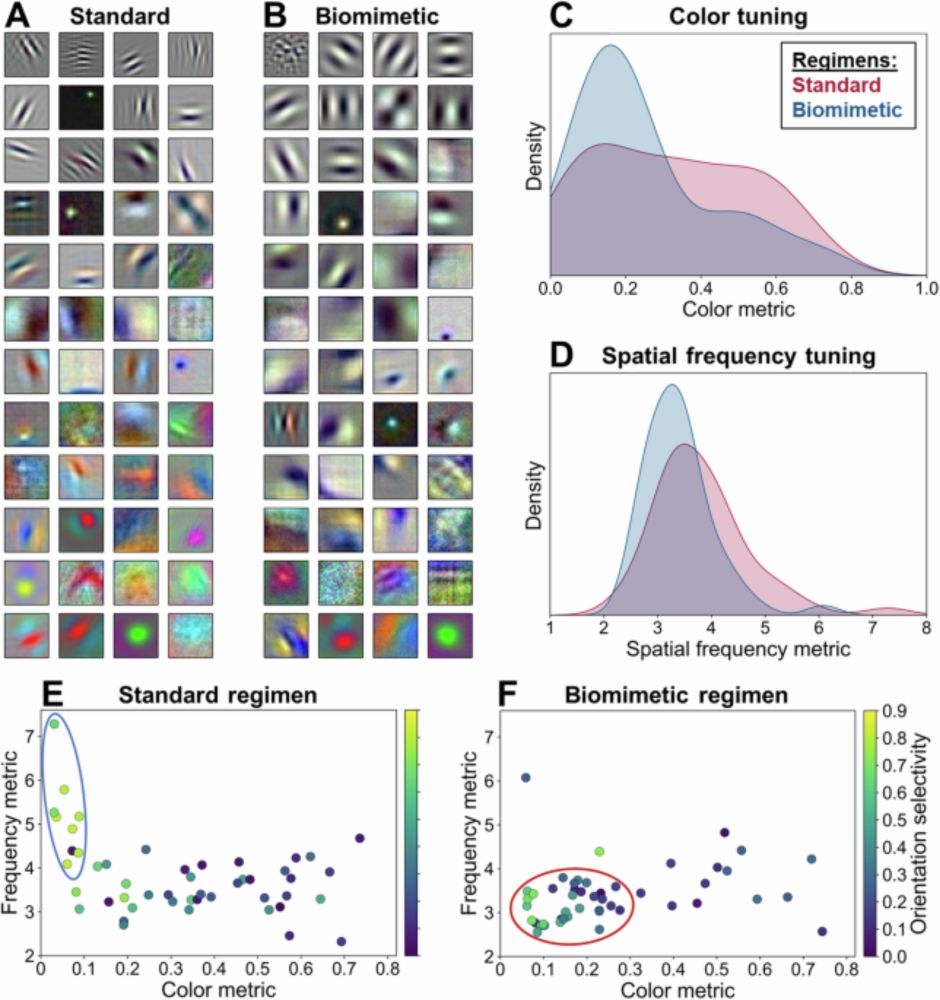
Contents of visual predictions oscillate at alpha frequencies
Predictions of future events have a major impact on how we process sensory signals. However, it remains unclear how the brain keeps predictions online in anticipation of future inputs. Here, we combin...
@dotproduct.bsky.social's first first author paper is finally out in @sfnjournals.bsky.social! Her findings show that content-specific predictions fluctuate with alpha frequencies, suggesting a more specific role for alpha oscillations than we may have thought. With @jhaarsma.bsky.social. 🧠🟦 🧠🤖
21.10.2025 11:05 — 👍 56 🔁 20 💬 4 📌 2
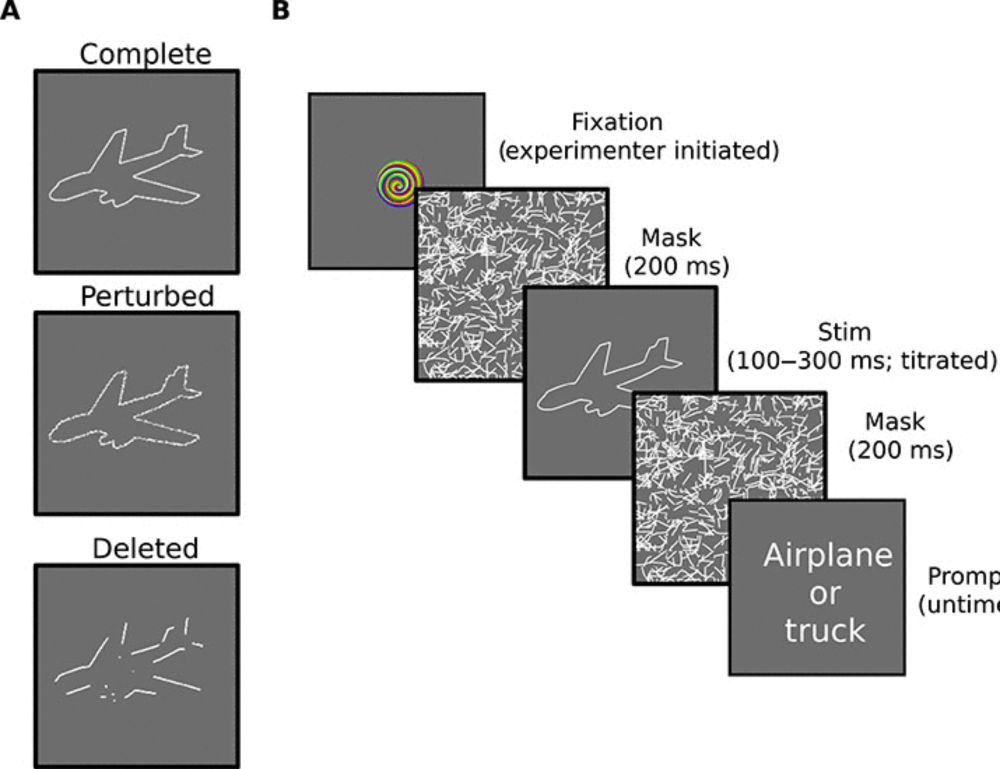
Fast and robust visual object recognition in young children
The visual recognition abilities of preschool children rival those of state-of-the-art artificial intelligence models.
My paper with @stellalourenco.bsky.social is now out in Science Advances!
We found that children have robust object recognition abilities that surpass many ANNs. Models only outperformed kids when their training far exceeded what a child could experience in their lifetime
doi.org/10.1126/scia...
02.07.2025 19:38 — 👍 106 🔁 36 💬 2 📌 2
UofG crows showing our incoming new students the values of hard work, focus and perseverance
02.10.2025 06:00 — 👍 3 🔁 2 💬 0 📌 0
Call for papers on conflict adaptation across single- and multi-tasking paradigms in the Journal of Experimental Psychology: Learning Memory & Cognition
The deadline for initial submissions is 1 October 2026.
24.09.2025 07:50 — 👍 9 🔁 4 💬 0 📌 0

Calling all PhD students & early career researchers! Boost your EEG skills in Nottingham, Dec 16–17. Hands-on training with ANT Neuro, Open Science Tools & @psychopy.org. Register: eventbrite.com/e/1692116779839
#Neurotechnology #BrainResearch #ScienceTraining
22.09.2025 13:00 — 👍 4 🔁 4 💬 0 📌 0

Distinct neural processing underlying visual face and object perception in dyslexia
Developmental dyslexia is a disorder marked by difficulties in reading, spelling, and connecting sounds to written language. The high-level visual dys…
Excited to share a new article from @icevislab.bsky.social! In a sample of over 60 people, we found distinct neural differences underlying object and face recognition in dyslexia. These findings highlight crucial domain-general visual processes that may contribute to word reading challenges.
23.09.2025 15:03 — 👍 14 🔁 7 💬 0 📌 2
It shouldn’t need saying, but these institutions are not going to stop capitulating to Trump until they have reason to fear the cost of doing so.
And that burden is on the public to impose.
Protest, boycott, strikes, mockery, whatever.
Make them feel it, or they won’t stop.
17.09.2025 23:33 — 👍 77 🔁 25 💬 1 📌 1
there is still beauty in the world
19.09.2025 19:49 — 👍 56 🔁 10 💬 1 📌 0
Common neural choice signals reflect accumulated evidence, not confidence! Now out in @cerebralcortex.bsky.social w @helenevanmarcke.bsky.social @pierreledenmat.bsky.social @yfvisser.bsky.social @denizerdil.bsky.social a.o.
Paper: desenderlab.com/wp-content/u... Thread ↓↓↓
19.09.2025 10:47 — 👍 45 🔁 21 💬 1 📌 0
ESCOP - Postdoctoral Position at McGill University, Montreal, Canada
ESCOP is a dynamic scientific society that provides a venue within which current research in cognitive psychology and neighboring disciplines can be presented, discussed and encouraged.
Postdoctoral Position at McGill University, Montreal, Canada
The Attention & Social Cognition Lab at McGill University invites applications for a postdoctoral researcher to join our dynamic team under the direction of Professor Jelena Ristic.
Application deadline: Fall 2025 (or until filled)
17.09.2025 08:59 — 👍 4 🔁 1 💬 1 📌 0


Interested in #EEG #FPVS #FaceLearning?
*An Ecological and Objective Neural Marker of Implicit Learning of Unfamiliar Identities*
Preprint 👉 osf.io/preprints/ps...
@bfh-ch.bsky.social University of Malta @snsf.ch
04.09.2025 06:03 — 👍 3 🔁 4 💬 0 📌 0
Let that number sink in.
This is how to do it when you’re fighting for the future of your democracy.
30.08.2025 18:20 — 👍 546 🔁 151 💬 15 📌 2

Our target discussion article out in Cognitive Neuroscience! It will be followed by peer commentary and our responses. If you would like to write a commentary, please reach out to the journal! 1/18 www.tandfonline.com/doi/full/10.... @cibaker.bsky.social @susanwardle.bsky.social
29.08.2025 18:43 — 👍 52 🔁 25 💬 2 📌 4
Exciting new preprint from the lab: “Adopting a human developmental visual diet yields robust, shape-based AI vision”. A most wonderful case where brain inspiration massively improved AI solutions.
Work with @zejinlu.bsky.social @sushrutthorat.bsky.social and Radek Cichy
arxiv.org/abs/2507.03168
08.07.2025 13:03 — 👍 139 🔁 59 💬 3 📌 10
ESCOP - Postdoc (80%) in the Cognition Lab at University of Zurich, Switzerland
ESCOP is a dynamic scientific society that provides a venue within which current research in cognitive psychology and neighboring disciplines can be presented, discussed and encouraged.
Postdoc (80%) in the Cognition Lab at University of Zurich, Switzerland
We are looking for a postdoc to work with us on the capacity limits of cognition (working memory, attention, long-term memory, ...).
Application deadline: 10 September 2025
07.08.2025 19:52 — 👍 15 🔁 14 💬 0 📌 0
Our oscillations consensus paper is finally out as a preprint 🤩 thanks to everyone involved
arxiv.org/abs/2507.15639
22.07.2025 12:46 — 👍 45 🔁 24 💬 1 📌 2
Our conversation analysis software is now on CRAN! Reach out with any questions. We hope it’s useful for all you language and social interaction folks out there.
22.07.2025 18:44 — 👍 39 🔁 15 💬 2 📌 0


Join us on August 22nd in collaboration with CSBBCS and SPARK Society for a free online webinar on finding postdoc opportunities!
Visit the following link to register for the event: shorturl.at/BVPtC
We hope to see you there!!
Please note that the meeting will be held exclusively in English.
21.07.2025 15:32 — 👍 7 🔁 7 💬 0 📌 0
I want to get to a stage in my career where I don't feel the need to appease every one of Reviewer 2's requests.
22.07.2025 14:19 — 👍 1 🔁 0 💬 0 📌 0
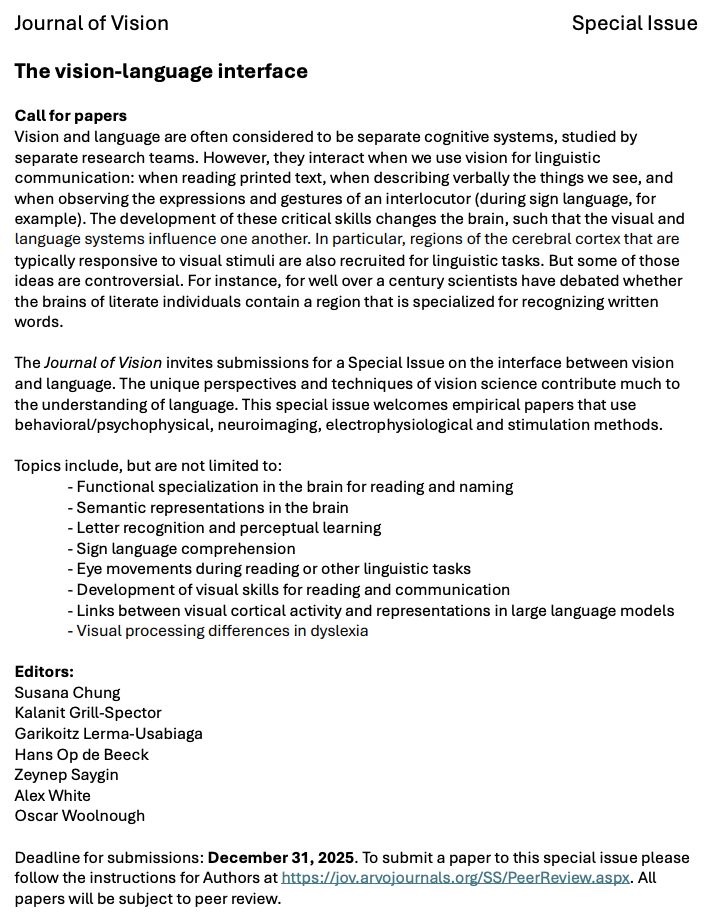
Journal of Vision Special Issue
The vision-language interface
Call for papers
Vision and language are often considered to be separate cognitive systems, studied by separate research teams. However, they interact when we use vision for linguistic communication: when reading printed text, when describing verbally the things we see, and when observing the expressions and gestures of an interlocutor (during sign language, for example). The development of these critical skills changes the brain, such that the visual and language systems influence one another. In particular, regions of the cerebral cortex that are typically responsive to visual stimuli are also recruited for linguistic tasks. But some of those ideas are controversial. For instance, for well over a century scientists have debated whether the brains of literate individuals contain a region that is specialized for recognizing written
words.
The Journal of Vision invites submissions for a Special Issue on the interface between vision and language. The unique perspectives and techniques of vision science contribute much to the understanding of language. This special issue welcomes empirical papers that use behavioral/psychophysical, neuroimaging, electrophysiological and stimulation methods.
Topics include, but are not limited to:
- Functional specialization in the brain for reading and naming
- Semantic representations in the brain
- Letter recognition and perceptual learning
- Sign language comprehension
- Eye movements during reading or other linguistic tasks
- Development of visual skills for reading and communication
- Links between visual cortical activity and representations in large language models
- Visual processing differences in dyslexia
Editors:
Susana Chung
Kalanit Grill-Spector
Garikoitz Lerma-Usabiaga
Hans Op de Beeck
Zeynep Saygin
Alex White
Oscar Woolnough
Deadline for submissions: December 31, 2025. All
papers will be subject to peer review.
For everyone out there working at the intersection of vision and language. We are currently accepting submissions for a Journal of Vision Special Issue on the vision-language interface
Submission deadline: Dec 31st
jov.arvojournals.org/ss/visionlan...
#neuroskyence #VisionScience #PsychSciSky
08.07.2025 17:50 — 👍 9 🔁 8 💬 1 📌 0
Why can't Microsoft just accept those of us with more than one account? It doesn't have to be this difficult.
25.06.2025 08:15 — 👍 1 🔁 0 💬 1 📌 0
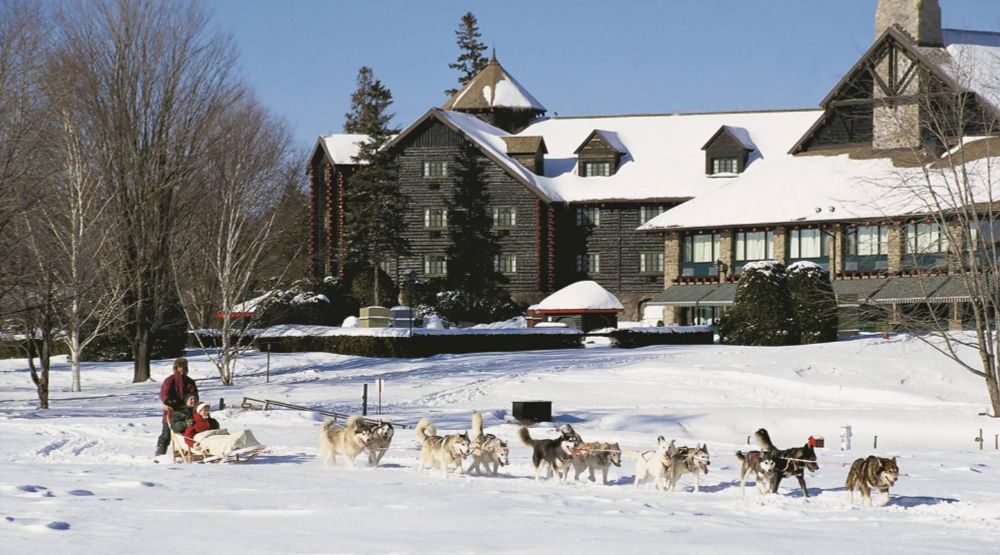
Dog-sled going past the Le Château Montebello.
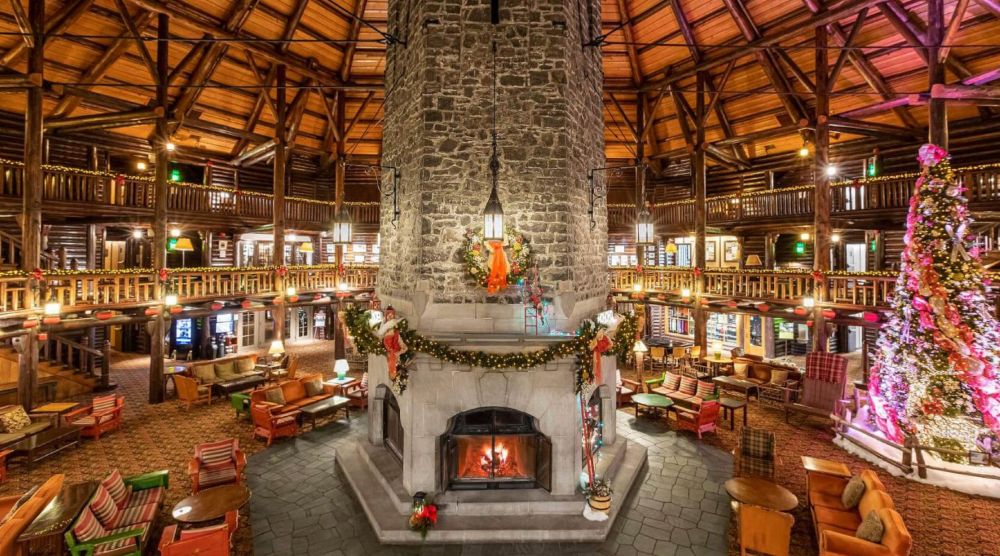
Main public room in Le Château Montebello decorated for Christmas. The building is the world's largest "log cabin".
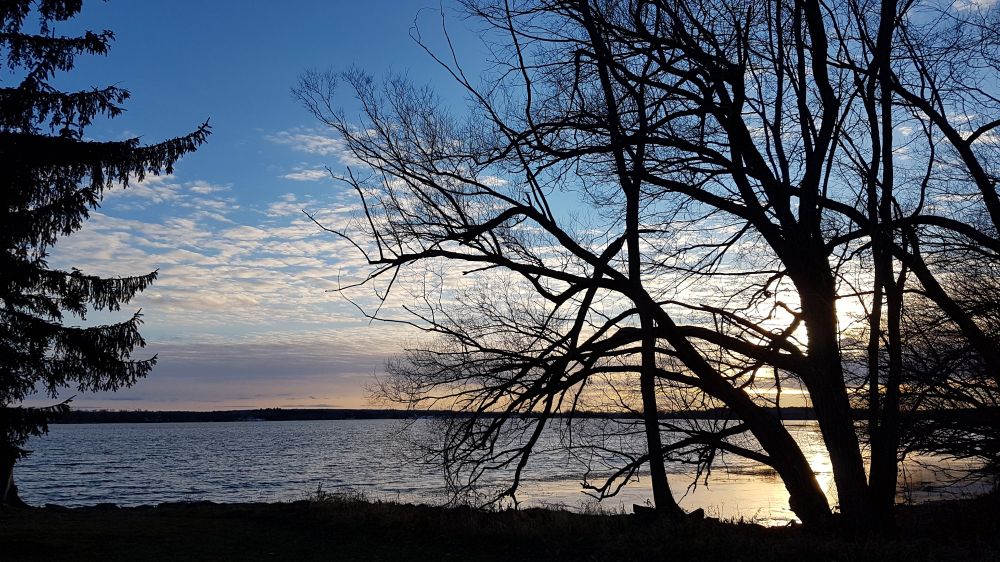
Le Château Montebello is situated on the banks of the Ottawa river, separating Quebec and Ontario.
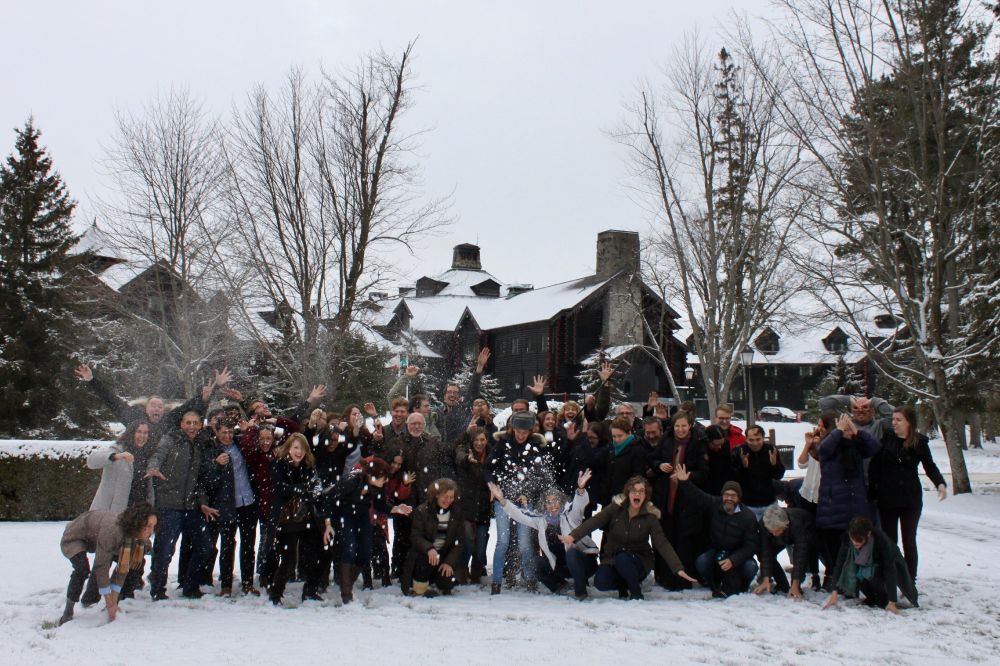
Group photo the school of 2018 at the Winter school on the Neuroscience of Consciousness
CIFAR invites applications for senior PhD and postdocs to participate in the Neuroscience of Consciousness Winter School, held in Montebello, Canada Dec 10-12, 2025. The Winter School is hosted by members of CIFAR’s Brain, Mind, and Consciousness program. Please repost.
cifar.ca/next-generat... 🧠🧪
03.06.2025 21:13 — 👍 79 🔁 52 💬 5 📌 3
Computation and Cognition @ HMU Potsdam
Computation and Cognition @ HMU Potsdam
We have a PhD position for an upcoming project in metacognition research in Potsdam / Berlin. A great opportunity for those interested in cognitive modeling of confidence and EEG.
More information at coconeuro.github.io/phd2025
Kindly share this opportunity with potential candidates - Thanks!
04.06.2025 11:07 — 👍 25 🔁 20 💬 1 📌 1
NeuroCog » November 17-18, 2025
NEUROCOG 2025 is taking place in Brussels Nov 17–18!
The theme: AI and the Human Brain 🤖 🧠
We’re thrilled to welcome 6 amazing invited speakers:
@evfedorenko.bsky.social, @nicoschuck.bsky.social, @summerfieldlab.bsky.social, @jeffreybowers.bsky.social, @irisgroen.bsky.social & @mtoneva.bsky.social
04.06.2025 13:44 — 👍 21 🔁 17 💬 1 📌 2

"We thank the reviewers for their helpful comments"
31.05.2025 12:56 — 👍 155 🔁 23 💬 3 📌 3
Welcome | SIDIC 2025
I am delighted to report that SIDIC, the Symposium for Individual Differences in Cognition, will return in 2025 as a Psychonomics affiliate meeting, & Akira Miyake will deliver the Keynote address. Submissions will open 6/15-8/1; please consider joining us! Info: caliberlab.wixsite.com/sidic2025
29.05.2025 17:04 — 👍 15 🔁 10 💬 1 📌 1
boy Ontario is just so thoroughly squandering this moment
30.05.2025 13:51 — 👍 391 🔁 105 💬 36 📌 16
I personally find the results from the extinction phase to be quite interesting. This is often where you see the greatest effect of the reward association magnitude for the colour word, suggesting that maybe distraction is strongest when motivation decreases. Future work is obviously needed :)
30.05.2025 08:34 — 👍 0 🔁 0 💬 0 📌 0
But the impairment by the reward-associated colour words was persistent but often not as influenced by these factors. Ultimately these results suggest some interesting similarities with reward-based distraction in spatial attention tasks like visual search but also some nice differences as well.
30.05.2025 08:34 — 👍 0 🔁 0 💬 1 📌 0
Born in 2014 in Berlin.
We are a collective promoting Cutting-edge EEG/MEG research.
On Mondays Jon Stewart hosts The Daily Show, but on Thursdays he hosts The Weekly Show. Listen wherever you get your podcasts & watch on YouTube.
Ex-neuro, turned strat intel for gov integrity. Tsundoku aficionado. Dad of 1+2. rstats, face perception, vision, and cortical organisation.
Learning data science informed strat intel and open gov.
https://mstdn.social/@bronsonharry
Doing an MSc EdPsych, AP Educator, 20+ years teaching, actually ADHD, child therapist, musician, artist, cat lover, allotment worker
Neuroscientist: pain perception, human neuroimaging, networks and graphs, cautious Neuro AI, clinical translation
NSSR | perception & EPEP labs
Biologist, researcher in evolutionary psychology, educator, science writer & editor. Evolutionary perspectives on aesthetics, arts, music, mating, sexual strategies, personality, twinning, anthropomorphism, COVID-19 pandemic, chronotype, & climate crisis🇧🇷
👀🧠🤖 cognitive neuroscientist @ Hoplab, KU Leuven | interested in vision and learning
phd student @ uc irvine cog sci w/ Megan Peters.
🧠 structure learning, metacognition, perception, comp cog neuro.
https://tinyurl.com/rochellekaper
she/her
Postdoctoral researcher @NeuroSpin | AI 🤖 & neuroscience 🧠 enthusiast
https://linktr.ee/alirezakr
The Cognition and Brain Circuitry Lab at OSU, focusing on brain connectivity, function, and behavior, with a special focus on visual perception and attention. Thoughts and opinions are our own.
Lab website: https://www.davidosher.com/index.html
U.S. Senator, Massachusetts. She/her/hers. Official Senate account.
https://substack.com/@senatorwarren
Reading | Language | Object recognition | fMRI
HOPLAB (KU Leuven) and CPP-Lab (UC Louvain)
Looking for a postdoc
Postdoc Researcher at the University of Texas at Austin
Interested in aging, dynamic cognition, and memory
PhD in Psychology from Brock University 🇨🇦
(she/her)
https://sarahehenderson.carrd.co/
Simons Postdoctoral Fellow in Pawan Sinha's Lab at MIT. Experimental and computational approaches to vision, time, and development. Just joined Bluesky!
Cognitive scientist. I study human visual perception, attention, and memory. Postdoc at the Vision and Cognitive Neuroscience lab (Golomb lab) @Ohio State University
I am a Ph.D. student at e-Campus University, Novedrate (Como), Italy. My Doctoral research focuses on the link between eye movements and cognitive deterioration. I am investigating different neurological disorders with eye-tracking technology.
Believe in yourself! Work hard, never give up & anything's possible! OR: Kick back, relax & aim low: You'll never be disappointed...😜 I IGNORE ALL DMs!
Waitress turned Congresswoman for the Bronx and Queens. Grassroots elected, small-dollar supported. A better world is possible.
ocasiocortez.com









